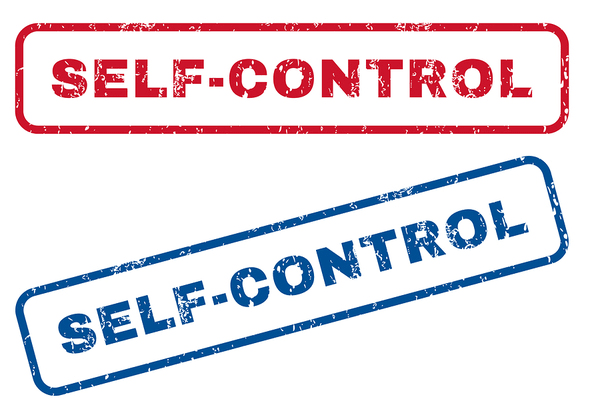Self-control is an important determinant of how well people do in terms of their economic status, educational attainment, and health. The ability to control one’s motivations, emotions, and expectations is also crucially important in the workplace.
People with self-control in positions of business leadership are more effective in daily management because they lead through positive methods rather than negative ones, such as criticism or micromanagement. They are also more likely to be inspirational leaders since they can challenge their employees intellectually rather than through negative methods.

When Self-Control Is Lost…
If self-control exerts such an important effect, it’s worth exploring what causes people to lose it. A recent Harvard Business Review report notes that self-control is analogous to physical strength. It can get overtaxed and it needs to be replenished. Specifically, self-control can erode through lack of adequate sleep. It can be pressed on by many factors. Self-control needs to be replenished. If it isn’t, people can snap, making poor decisions and becoming overemotional.
The cost of eroded or lost self-control can be steep in all areas of business. HBR points out that it can lead to unethical behavior. Accountants, for example, are more likely to commit fraud if they have poor self-control.
It can also reduce job performance. Fatigued people make more mistakes and their judgment is impaired. People who are angry or otherwise emotional may not put the same level of care into their work as those who are not.
Lack of self-control diminishes managerial styles. Managers who have inadequate self-control may berate their employees or use other negative practices that will affect their management performance for years to come.
…And How It Can Be Regained
Once these causes have been pinpointed, it becomes relatively easy to see how self-control can be maintained and regained once it is lost. Companies can help employees to maintain good self-control.
- The first method is to get adequate sleep. Rest restores self-control like a reservoir. The authors suggest that the ability to be “on” 24/7 is not necessarily good for self-control.
- The second is to review those company standards that may lead to poor self-control. Customer service people who are encouraged always to smile at customers, for example, tend to snap at subordinates later. Their reservoir of self-control has been depleted by the difficulty of the interaction. While revealing frustration or impatience may be inadvisable, they can be helped to maintain self-control in other ways, such as being encouraged to be more empathic or to replenish themselves with a break.
- The third method is to reinforce codes of conduct that might be eroded by diminished self-control. Ethical and quality standards, for example, might be displayed prominently, where the reminder will serve as a reminder that ethical and quality violations will not be tolerated.
Self-control is an important determinant of success in almost every area of life. It is especially important for maintaining high standards and good management in the workplace. It’s, therefore, crucial to know what depletes self-control and what can replenish it.
